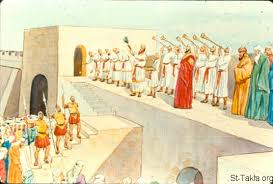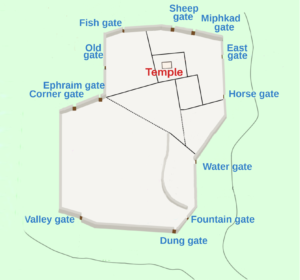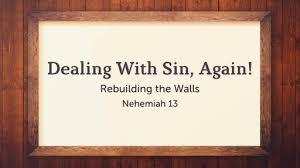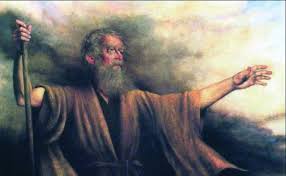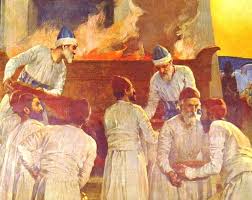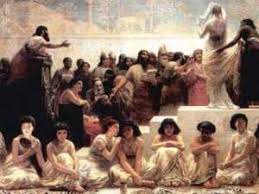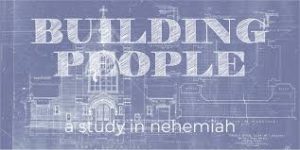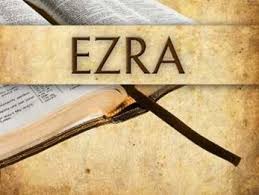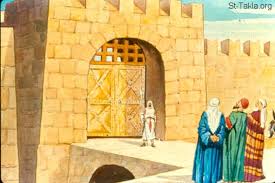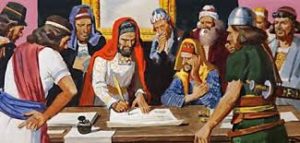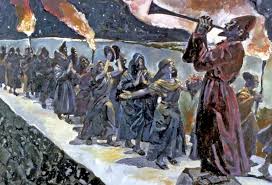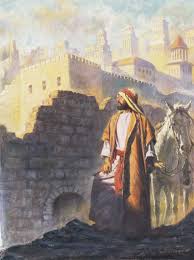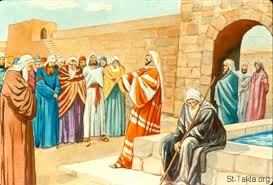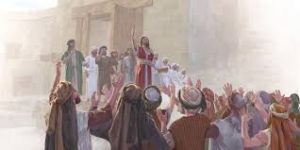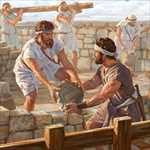Ba – The Completion of the Temple Ezra 5:1 to 6:22
The Completion of the Temple
Ezra 5:1 to 6:22
BC During the ministry of Zerubbabel (to see link click Ag – The First Return).
Compiled by the Chronicler from the Ezra memoirs
(see Ac – Ezra-Nehemiah from a Jewish Perspective: The Ezra Memoirs).
Ezra 4:8 to 6:18 is written in Aramaic, the language that the Persians used in official documents (much like the Roman Empire used Greek).

Work on the Temple had been stopped for a long time. After sixteen years a new beginning was needed. And like every spiritual advance from Abraham’s going to the Promise Land to Paul’s ministry to the Gentiles, this venture began with a word from ADONAI. For this God used two prophets, Haggai and Zechariah, whose message of rebuke, exhortation, encouragement, and assurance were desperately needed by the restored community. Their mission was to bring about spiritual renewal and to motivate the people and restore proper worship to YHVH.98 So in the year 520, a year after the accession of King Darius, the earnest appeals of the prophets Haggai and Zechariah came and the people responded with enthusiasm. The work of building was resumed. An appeal to the king resulted in a confirmation of Cyrus’ decree (see Ai – The Decree of Cyrus) and the grant of Persian assistance for the construction and maintenance of the Temple. In 515 BC God’s House was completed and dedicated, just over seventy years after the destruction of Solomon’s Temple. The first and most obvious reason for its construction was to provide a place where the worship ritual commanded by the Torah could be provided.
Of course, YHVH needs no earthly physical Temple in which to live, a matter that Solomon made clear in the opening-day celebrations that followed the completion of the First Temple and that was repeated by Stephen in the B’rit Chadashah: However, Elyon does not dwell in man-made houses (Acts 7:48). To make it clear, Stephen quoted from Isaiah, “Heaven is My throne, and the earth is the footstool of My feet. What kind of house will you build for Me, says Adonai, or what is the place of My rest? Did not My Hand make all these things” (Acts 7:49-50 quoting Isaiah 66:1-2)?
ADONAI is bigger than the confines of the Most Holy Place. Human beings have always been good at shrinking God down to a manageable size. That is why Martin Luther, in the sixteenth-century Reformation, insisted that most of us make our God “too small.” It was a warning that we need to hear also. Ha’Shem cannot be boxed and wrapped into discrete and manageable sizes.
And yet, YHVH did dwell in the Temple! It was His House (Ezra 6:4). Even at the creation of the world, Ha’Shem limited Himself so that we could understand Him. Nowhere is this made clearer than the incarnation, when the Second Person of the Trinity came into this world, born of woman, born under the Torah (Galatians 4:4). But nowhere is this more sublimely put than in the prologue to John’s gospel: In the beginning was the Word. The Word was with God, and the Word was God. He was with God in the beginning. All things were made through Him, and apart from Him nothing was made that has come into being . . . And the Word became flesh and tabernacled among us. We looked upon His glory, the glory of the one and only from the Father, full of grace and truth (John 1:1-3, 14).
Any yet there is an even more: the physical Temple in Jerusalem would give way to God’s dwelling place in the hearts of believers: Your body is a temple of the Ruach Ha’Kodesh (First Corinthians 6:19). As we learn about the rebuilding of the Second Temple, we need to have in view the bigger picture of what this building represents. The Bible views the Church, made up of Jewish and Gentile believers (Ephesians 2:14a), as a temple for God. It says: Don’t you know that you are God’s temple and that the Ruach Ha’Kodesh dwells among you (First Corinthians 3:16)? How amazing is that? The living God who is infinite and eternal comes and lives with His sinful people!99





